Course Transformation Work
Atmospheric and Oceanic Sciences Undergraduate Major, ATOC: The Department of Atmospheric and Oceanic Sciences (ATOC) began offering an undergraduate major in Fall 2016, which places emphasis on interactive learning and solving real-world problems. The overarching goal of the major is for ATOC students to apply investigative thinking to solve critical natural science problems rooted in the physical processes of the atmosphere and ocean, employing approaches that emphasize scientific theory, empirical data, modeling, and computational data analysis. ATOC students also learn to communicate scientific concepts clearly and elegantly, act with professional integrity, and prepare for a diverse set of careers.
Gateway to Atmospheric and Oceanic Sciences, ATOC 2050: ATOC 2050 is a new, never before offered, lecture course that is being designed to serve as the gateway introductory course for a new undergraduate major in Atmospheric and Oceanic Sciences. The overarching goal of this course is to introduce program-level goals for the ATOC major as a whole. This course will be offered every spring semester, beginning in 2020.
Stratospheric Explorations, FYSM 1000: FYSM 1000 is a first-year course that was designed to incorporate the major learning goals of the new ATOC major and to serve as the first iteration of ATOC 2050. Students explore principles of the Earth’s stratosphere, weather and climate by analyzing real NASA satellite data, engaging in hands-on measurements and in-class activities, and thinking critically about how the media portray scientific issues. This course was offered for the first time in 2018, and will be offered every fall semester in the future.
Faculty and Student Development Programs
Poster Award: ATOC TRESTLE Scholars won the Center for STEM Learning Fellows’ Choice Award for their poster presentation about the design of their new undergraduate major at the Center for STEM Learning Symposium held at the University of Colorado, Boulder in September 2016.
Meeting Attendance: ATOC TRESTLE Scholars presented a poster at the TRESTLE Network Meeting held at the University of Colorado, Boulder in October 2016.
CU Boulder Chancellor Award: Dr. Melissa Nigro received a Chancellor Award for her proposal titled, “Using Project-Based Learning to Achieve Skill-Based Learning Goals in an Introductory-Level Atmospheric and Oceanic Sciences Course.” The funding associated with this award will be used to develop the course materials for ATOC 2050.
Research Highlight
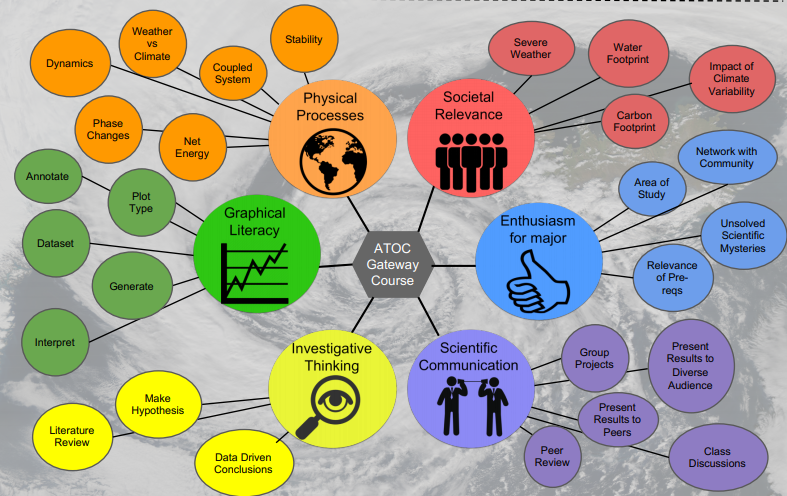
This figure shows the goals of designing a new undergraduate major in Atmospheric and Oceanic Sciences using backwards design and course-level learning goals.
Experts
 Dr. Stephanie Chasteen is a Research Associate at the Center for STEM Learning and the Associate Director of the Science Education Initiative at the University of Colorado, Boulder. Her research focuses on STEM educational reform, especially in evidence-based teaching strategies and institutional change. She also uses her expertise in STEM education to consult and evaluate large-scale national education projects for many U.S. universities and societies, including the American Physical Society and the American Association of Physics Teachers. Dr. Chasteen is a Co-PI on the TRESTLE project and can be contacted at stephanie.chasteen@colorado.edu
Dr. Stephanie Chasteen is a Research Associate at the Center for STEM Learning and the Associate Director of the Science Education Initiative at the University of Colorado, Boulder. Her research focuses on STEM educational reform, especially in evidence-based teaching strategies and institutional change. She also uses her expertise in STEM education to consult and evaluate large-scale national education projects for many U.S. universities and societies, including the American Physical Society and the American Association of Physics Teachers. Dr. Chasteen is a Co-PI on the TRESTLE project and can be contacted at stephanie.chasteen@colorado.edu
 Dr. Derek Brown is an Instructor in the Department of Atmospheric and Oceanic Sciences at the University of Colorado, Boulder. His research interests include atmospheric science, meteorology, and climate change. Dr. Brown is a TRESTLE Scholar and can be contacted at derek.brown@colorado.edu
Dr. Derek Brown is an Instructor in the Department of Atmospheric and Oceanic Sciences at the University of Colorado, Boulder. His research interests include atmospheric science, meteorology, and climate change. Dr. Brown is a TRESTLE Scholar and can be contacted at derek.brown@colorado.edu
 Dr. Alexandra Jahn is an Assistant Professor in the Department of Atmospheric and Oceanic Sciences and a Fellow in the Institute of Arctic and Alpine Research at the University of Colorado, Boulder. Her research involves the use of climate, paleoclimate, and isotope modeling to understand sea ice variability and freshwater dynamics in the Arctic. Dr. Jahn is a TRESTLE Scholar and can be contacted at alexandra.jahn@colorado.edu
Dr. Alexandra Jahn is an Assistant Professor in the Department of Atmospheric and Oceanic Sciences and a Fellow in the Institute of Arctic and Alpine Research at the University of Colorado, Boulder. Her research involves the use of climate, paleoclimate, and isotope modeling to understand sea ice variability and freshwater dynamics in the Arctic. Dr. Jahn is a TRESTLE Scholar and can be contacted at alexandra.jahn@colorado.edu
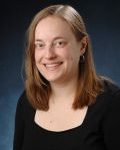 Dr. Nicole Lovenduski is an Assistant Professor in the Department of Atmospheric and Oceanic Sciences and the Institute of Arctic and Alpine Research at the University of Colorado, Boulder. Her research seeks to understand the biogeochemistry and climate variability of modern-day ocean ecosystems using ocean models. Dr. Lovenduski is a TRESTLE Scholar and can be contacted at nicole.lovenduski@colorado.edu
Dr. Nicole Lovenduski is an Assistant Professor in the Department of Atmospheric and Oceanic Sciences and the Institute of Arctic and Alpine Research at the University of Colorado, Boulder. Her research seeks to understand the biogeochemistry and climate variability of modern-day ocean ecosystems using ocean models. Dr. Lovenduski is a TRESTLE Scholar and can be contacted at nicole.lovenduski@colorado.edu
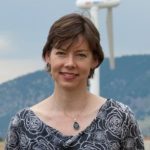 Dr. Julie Lundquist is an Associate Professor and Graduate Advisor in the Department of Atmospheric and Oceanic Sciences at the University of Colorado, Boulder. She is also a Fellow in the Renewable and Sustainable Energy Institute. Her research involves the use of observational and computational approaches to understand the wind-energy interactions of the atmospheric boundary layer. Dr. Lundquist is a TRESTLE Scholar and can be contacted at julie.lundquist@colorado.edu
Dr. Julie Lundquist is an Associate Professor and Graduate Advisor in the Department of Atmospheric and Oceanic Sciences at the University of Colorado, Boulder. She is also a Fellow in the Renewable and Sustainable Energy Institute. Her research involves the use of observational and computational approaches to understand the wind-energy interactions of the atmospheric boundary layer. Dr. Lundquist is a TRESTLE Scholar and can be contacted at julie.lundquist@colorado.edu
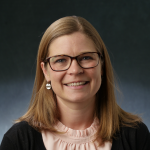 Dr. Melissa Nigro is an Instructor in the Department of Atmospheric and Oceanic Sciences at the University of Colorado, Boulder. Her research is focused on the driving forces of the low-level wind field over the Ross Ice Shelf, Antarctica. Dr. Nigro is a TRESTLE Scholar and can be contacted at melissa.nigro@colorado.edu
Dr. Melissa Nigro is an Instructor in the Department of Atmospheric and Oceanic Sciences at the University of Colorado, Boulder. Her research is focused on the driving forces of the low-level wind field over the Ross Ice Shelf, Antarctica. Dr. Nigro is a TRESTLE Scholar and can be contacted at melissa.nigro@colorado.edu
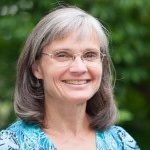 Dr. Cora Randall is a Professor and Chair of the Department of Atmospheric and Oceanic Sciences at the University of Colorado, Boulder. Her research involves the use of satellite remote sensing to investigate the physics, chemistry, and dynamics of the middle atmosphere. Dr. Randall is working with TRESTLE Scholars as the instructor of the first-year seminar, Stratospheric Exploration (FYSM 1000), which she teaches in Fall 2018 as the first iteration of ATOC 2050, she can be contacted at cora.randall@colorado.edu
Dr. Cora Randall is a Professor and Chair of the Department of Atmospheric and Oceanic Sciences at the University of Colorado, Boulder. Her research involves the use of satellite remote sensing to investigate the physics, chemistry, and dynamics of the middle atmosphere. Dr. Randall is working with TRESTLE Scholars as the instructor of the first-year seminar, Stratospheric Exploration (FYSM 1000), which she teaches in Fall 2018 as the first iteration of ATOC 2050, she can be contacted at cora.randall@colorado.edu
